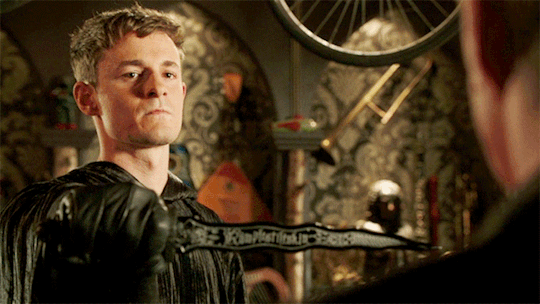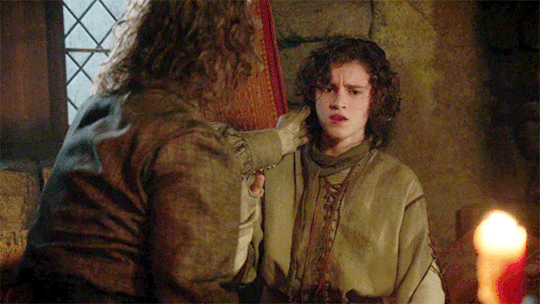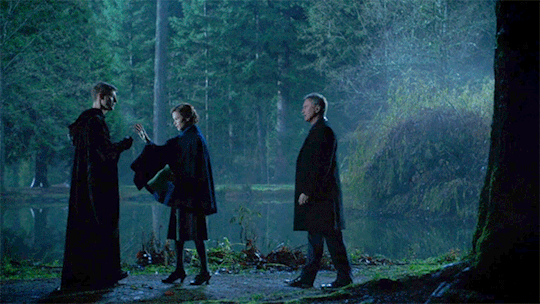#Ill-boding Patterns
Explore tagged Tumblr posts
Text








It's just you and me. No walls, no secrets. I know I ruined the surprise...but what do you say?
#ouatedit#onceuponatimeedit#captainswanedit#ouat#once upon a time#captain swan#emma swan#killian jones#s6#6x13 ill-boding patterns#dynamic: captain swan#event: rewatch 22
259 notes
·
View notes
Text
WHOOHOO!!!!
1 note
·
View note
Text
The Impact of Light Yagami's Time in Confinement
This meta draws from the Washington University Journal of Law and Policy paper Psychiatric Effects of Solitary Confinement by Stuart Grassian.
While solitary confinement is generally used in TV shows as a less extreme method of torture or interrogation, since it does not involve physical violence, it is actually quite brutal. People who undergo solitary confinement may experience perceptual distortions up to and including hallucinations involving multiple senses, as well as paranoia and obsessional thoughts, and difficulties thinking and concentrating, along with violent outbursts and self harm. "Prisoners confined in solitary confinement for no longer than one week were oftentimes found to have acute psychotic breaks," and there is a group of symptoms that tend to show up in cases of solitary confinement that are quite distinct, and some of the hallucinatory symptoms are ones that commonly show up in neurological illnesses.
Solitary confinement was first popularized in the American prison system, with the idea that it would allow criminals to think and repent—however, what was instead found was a baffling pattern of mental illness that correlated with the people who were put into such sensory restrictive states. After this was realized, the extreme measures of solitary confinement in prisons were scaled back, but solitary confinement continued to be used as a method of torture.
Not every person who undergoes solitary confinement will have the full range of symptoms. Some people deal better with it than others, and there are a few underlying reasons why that is. Firstly, "an individual who receives clues which cause him to experience the isolation situation as potentially threatening is far more likely to develop adverse psychiatric reactions." How does this apply to Light?
For the first seven days Light spends in confinement, he still has all his Kira memories and knows that he is locked up because he wants to be, as part of his grand plan. He seems quite in control and generally even-keeled. Then, he loses his memories. Instantly, he panics, because he suddenly believes he's been framed and unjustly imprisoned for the crimes of Kira, and he has no clue if he'll ever be freed. Light's isolation immediately becomes a threatening experience. Canon glosses over the full fifty-three days of his confinement, but we can see a little bit of how it wears on him in the few panels it cuts to him, as he progresses little by little over the days to increasingly apathetic postures.
Going into more detail on the symptoms of solitary confinement, adjustment to isolation tends to take one to three weeks. This will include anxiety and hyperactivity. But gradually, the prisoner "gives up all spontaneous activity within his cell and ceases to care about personal appearance and actions. Finally, he sits and stares with a vacant expression, perhaps endlessly twisting a button on his coat." This is something we canonically observe in Light's time in confinement, as the Light at the end of his confinement spends his days apparently lying on the floor and staring into space, when L isn't interrogating him.
There is another reason that doesn't bode well for Light's time in solitary confinement, and that is his personality. The people who do the worst in solitary confinement include psychopathic individuals and people with ADHD. The reason, the study surmises, is that solitary confinement is in effect extreme sensory deprivation, and these personalities already suffer from being chronically understimulated. Without diagnosing Light, I think it's possible to surmise that he would do badly in solitary confinement, as he is canonically "unable to tolerate routine and boredom" similar to those who suffer the most in solitary confinement. The quoted paper makes this remark: "Individuals with high needs for novelty and new sensations, ... who are emotionally unstable, or who are unconcerned with social approval seem unsuited for ... such environments ... The opposite [traits are found in] those who adjust well." Bad news for Light all around.
On the plus side, Light is educated and functioned quite well in day to day life before confinement, which are some of the traits found in those who do the best in such a situation. Even so, although individuals who do the best in this situation don't suffer the same psychotic states, they still experience perceptual disturbances, anxiety, panic attacks, and difficulties in cognition and memory with frequent mental fog.
Fortunately, the acute symptoms of solitary confinement quickly disappear the moment a person has been released from the situation. Unfortunately, there are also many long-term effects such as PTSD including pervasive feelings of hopelessness and depression, hypervigilance, withdrawal, and personality changes including intolerance with social interaction.
I would argue that Light canonically shows evidence of some of these long-term effects, as the Light we see in part 1 is social, friendly, and outgoing to all appearances (despite his inner thoughts) and even while being suspected of murder, is a generally optimistic and happy person. Yotsuba arc Light is rarely the focal character, and is mostly seen "performing" for the rest of the task force and L, but in part 3, after the time skip, where Light is again the main character, we can see that he lives a remarkably different life.
Despite quickly rising through the ranks of the police and growing the scope of his Kira activities, Light spends most of his days in one single apartment, interacting with the same five people. He does not seem to have any social life outside of this. He is markedly less social than his younger self, and frequently blindsided by events that one can assume his younger self would have taken in stride. He spends plenty of time gloating about his superiority over Near, yet Near is able to easily undermine him again and again—and I argue that it's not that Near is so much smarter than L, or even that Light is in a worse-off position now than he was back then. At least not to start.
The real difference is in the way Light reacts to threats and the fact that he spends so much less time cultivating his social image and disregarding his allies.
There are many possible reasons for the difference in Light's character pre- and post- timeskip, but one I've never seen brought up is the potential effect of the solitary confinement he underwent.
296 notes
·
View notes
Text
"Baelfire's cousin Bonfire" i cant stop coughing-laughing
Once Upon A Time Rewatch: 6x13 Ill-Boding Patterns

Okay, no idea which episode this is going to be. Time for a suprise!
Oh God! Not this one!
That man is freaking tall!
Apparently, he’s 6’4”. No way! That’s my uncle’s height but he never seems THAT tall. This dude could straight up wrestle one of those ogres and win.
Who cares if you’re known as a coward? It’s just a word that someone made up years ago. No point getting killed just so people won’t call you a silly made up word. Words mean nothing unless we choose to take meaning from them. We’re all living in a matrix.
The tall guy seems manipulative.
It would be like being poked with toothpicks to the ogres. Pointless.
They should have used magic all along! Blue is supposed to be more powerful than the Dark One and the kids were crying out to her. Why couldn’t she have defeated them all years ago?! Because she’s a shady biatch. That’s why.
Killian being called son by David seems so weird given Killian’s age.
Gosh, Harry Potter gets Sirius black as an awesome Godparent and then there’s Gideon, who gets stuck with the freaking Blue Fairy of all people! Can you imagine?
I suppose this kid looks enough like original Baelfire.
Gideon is so dramatic, bless him.
Night night.
What is Robin doing?
What’s he up to?
It’s great that he doesn’t want his son to fall into the darkness like he did. It shows that deep down he thinks evil is the wrong way.
Umm. Wtf is that with them basically giving Baelfire ‘blackface’ to ‘make him look like a monster’??! That doesn’t even look like mud! Listen, I’m black and these implications are horrible! Why couldn’t they have covered him in sparkly dirt or something gold? They did not think this through at all. Yikes!
How is he gonna save all those people without his magic?
Where’d he get those golden presumably magic-suppressing-ropes from? Those would have come in handy in the past!
Rumple tried to do the right thing when he first became the Dark One. He really did.
Oh, it’s Belle’s book that brainwashed Gideon? Why does that not surprise me.
Why didn’t a memory potion work on him?
Oh! It was the cuff, not the ropes that supressed his magic.
Oh God. You don’t understand the horrible sense of terror I had when I first watched this episode. For some reason I thought the Grendel was that bloody terrifying guy in one of the first episodes of OUAT in Wonderland. If you know, you know. I spent every flashback scene squinting with one eye, my heart flipping pounding, especially when they went into the cave!
This guy has got to be 7 foot!
Zelena: “And then, it’s hello New York City” Of course, we all know she wants to go back to see ‘Wicked’ on Broadway for the 14th time xD. It’s her favourite show!
I forgot who’s spell it was keeping them in SB now. Split Queen’s, maybe?
I hate this part so much. Anyway, this boy is an imposter because Baelfire would never!!
Nop, nope, nope, nope, nope. This goes against everything Baelfire stands for!! Why would they do this?! It makes me so angry! It’s not canon! I refuse to accept this as canon! This is Baelfire’s cousin, Bonfire, okay! I hate this so much.
Sure you tried Blue, sure you tried. We all know you threw him off a cloud.
Ow!
Sorry Blue, but it is a truth universally acknowledged that bitches get stitches.
Rumple and Gideon working together.
Wtf have they done to Baelfire?! He would never want to enact revenge on someone for pushing him in the mud. He would try to defend them from his father. What is this bullcrap? And now he thinks he needs the dagger. He. Hates. Magic. Don’t you understand your own character, show?
I thought he just needed her blood, not all her magic.
I used to have the jumper Emma’s wearing. I wonder what happened to it.
Uh oh. The worst time to propose would be now. He should tell her first. The secret we know he’s holding back kinda kills this moment.
Are Zelena and Regina gonna make up now?
Regina: “I guess I’ll always be paying the price for what you did- what I did.” Yay! Progress!
Split Queen’s gone!
Ow! Why’d she bite him? Are cobras venomous, I wonder.
#im never gonna watch this episode#ouat#once upon a time#6x13 ill-boding patterns#6x13 ill boding patterns#ouat 6x13#rumplestiltskin#baelfire#gideon gold#ouat gideon
6 notes
·
View notes
Text






OUAT Rewatch 6x13 - Ill-Boding Patterns
I’ve already lost one son. I won’t lose another.
#ouat#once upon a time#ouatedit#onceuponatimeedit#rumplestiltskin#rumpelstiltskin#baelfire#gideon gold#ouat rewatch 2022
156 notes
·
View notes
Text

chapter summary: golden girl and her sidekick break into the dark one's fortress. chapter word count: 2071 a/n: look at me posting on time. bon apetit friend! taglist:@accidental-spice@kanerallels@ouatnextgen@booksteaandtoomuchtv (if you'd like to be added to my cygnet scholar taglist, let me know!) also on ao3!
#8: Ill Boding Patterns
Within twenty minutes, Hope found herself crawling through the dark one's fortress, Gideon at her side.
"I didn't know vents were this big in real life." Hope said. "I thought they just made that up for the tv shows, and Among Us, and stuff."
"Oh, they did." Gideon said. "I told you, this isn't the ventilation shaft. It's a labyrinth of connected tunnels designed as an emergency exit and entrance, entirely reinforced against any disaster, and can be used to get from one side of the lair to the other without difficulty."
"That can't be secure."
"That's why it's got a triple fireblock anti-intrusion system."
"So how did we get in?"
"I've been cracking triple fireblock anti-intrusion systems since I was seven." Gideon said. "Did you not pay attention when I explained this to you?" "When have you ever known me to pay attention?" Hope said.
"You're right." Gideon said. "I should've expected less of you."
"Thank you."
"Let's just get this over with," Gideon said. "The door's just up ahead."
"Are you sure you want to go through with this?" Hope asked, trying to read his expression in the tunnel's low lighting. "I mean, going head-to-head against your dad…." "Of course." Gideon said.
"Okay." Hope nodded.
"And, hey, whatever happens out there," Gideon said, "it's been a pleasure."
"I can say the same."
Gideon pressed a couple buttons on his watch, and the hatch in the ceiling in front of them popped open.
"Now, you remember the plan, right?" Gideon asked. "The plan that doesn't involve running in there willy nilly and getting us both killed?"
"The plan is to run in willy nilly and get us both killed?" Hope asked, pretending she only heard half his warning. "A little unorthodox, but okay!"
Before Gideon had a moment to stop her, she jumped out of the access hatch and into a dimly lit room. Hope readied herself for a fight, but saw none coming.
"Hey?" Hope asked. "What gives? Where are the henchmen? The goons? The baddies?"
"Not here." Gideon said, crawling out of the tunnel.
"Then what was with all that 'we need a plan' stuff you said?" Hope asked. "The sneaking and waiting?"
"That 'stuff' should be standard protocol." Gideon said. "Besides, I knew you wouldn't listen anyways, so I figured we may as well open into the empty corridor next to the main control room, just as a precaution."
"Not fair."
"Just trying to keep us both safe." Gideon said.
"I appreciate it." Hope nodded, walking towards a large door. "So, behind this door is an armada of enemies you'll defuse with your sleeping dust, buying us enough time for you to deactivate the fortress' defences and give the supers in their holding cells a chance to escape and cause distraction while we delete any files they have on the League?"
"Not quite." Gideon said.
"Ugh." Hope rolled her eyes, "What, was 'deactivate' not the right word for the delicate computer process you're gonna undertake?"
"Nope." Gideon shook his head.
"So you want me to refer to your 'sleeping dust' by its proper scientific name?"
"Don't be ridiculous, Hope."
"Is holding cells the wrong…." "No." Gideon interrupted.
"Then what did I get wrong with my otherwise perfect relaying of your plans?" Hope leaned against the door behind her for dramatic effect.
Gideon smiled. "That door leads to the lavatory. The control room's over here."
He nodded in the direction of another large door, and she followed him there with a bashful silence.
"Now, follow my lead this time." Gideon said. "I'll crack the door open just enough to get my sleeping dust into the air, then…"
"I get it." Hope said. "Just, hurry. Who knows what they're doing to mom and dad."
Gideon nodded sagely, then pressed the screen of his watch, opening the door just enough to let in the nozzle of a spray gun at his belt.
He pulled the sprayer out of the door and it closed in front of them. He held up his hand, counting down on his fingers, then pointed to the door as he got down to one, and, almost as if in response, the sound of several bodies thudding and clanking against the floor came muffled through the closed door.
"You're a genius, Gid."
He smiled. "It's a gift."
Hope rolled her eyes, then shifted to her game face as Gideon opened the door.
Hope had figured this would be something like the hub in the Lego Star Wars game they'd played as kids, with a giant circular console, a couple scattered people (though instead of minifigures, these would be sleeping bodies of henchmen) and maybe some panels on the wall or giant windows or something.
Her assumption wasn't too far off. There was a central computer, but it was more boxy than expected. There were a couple unconscious bodies, but instead of scattered across the room, they were regulated to a cage in the corner, aside from one in the center of the room, between Hope and the console, one that, instead of snoring on the ground, was standing, and laughing.
"Ah, nice to finally meet you." The stranger said, clad in deep grey clothing with a dark hood, and a scaly mask across his whole face. "It's Golden Girl, right?"
Hope tried to keep a brave face, knowing that, since the sleeping dust hadn't worked, it was time for plan B— distract whoever was left standing long enough for Gideon to sneak in and install a macrovirus to the fortress' hardware. She hadn't counted on "whoever was left standing" to be Gideon's dad, but she didn't let that stop her.
"And I take it you're The Dark One?" She asked.
"Dark One?" He asked, then laughed a little. "Doesn't have a bad ring to it."
"How do you know who I am?" Hope asked. She began to sidestep away from the door, and The Dark One kept his eyes fixed on her.
"Just because the League doesn't keep tabs on you doesn't mean I don't," he smiled. "You've been in this game for five years, but didn't make the big leagues until you took down Abominable last July. You have honed your skills in flight, self-healing, and standard fisticuffs, and have the ability to teleport both liquid and solid nonliving objects over a distance under and up to twenty feet away. While you usually work alone, you sometimes team up with," and he stopped and laughed again, "oh, where are my manners? I believe you've met my guests."
He nodded in the direction of the large cage in the corner of the room, and Hope realized the bodies on the floor were a bit too familiar. She ran to the edge of the cage and saw, sure enough, her parents, lying on the ground.
"What did you do to them?"
"Me?" The Dark One asked. "They were perfectly fine until about seventeen seconds ago, when someone flooded the room with a sleeping powder. Truly a visionary plan, if only it worked."
She looked over his shoulder to see Gideon already at the main computer, holding up three fingers.
"Three minutes?" Hope thought. "Three seconds? Three hours? I'll stall as long as I can, but I can't guarantee any of those."
"The plan would've worked just fine if we knew you were here."
"We?" The Dark One asked. "I thought Golden Girl works alone."
"I do." Hope lied.
"Well, if you do," The Dark One said. He turned his head, and in a flash teleported behind the console, then back in front of Hope, now holding a squirming Gideon by the scruff of his neck, "then who's this?"
"No one." Hope said, trying to see a plan through the worry clouding her mind.
"Well, if he's no one," The Dark One asked, "then would you have a problem if I removed him from the premises? Permanently?"
Gideon shook his head no, trying to warn Hope not to try to save him, but the fear in his eyes and her own said otherwise.
"You don't want to hurt him." Hope said, and this was, according to the intel they'd recently uncovered, very, very true.
"Oh, I think I do." The Dark One smiled.
"No." Hope shook her head. "Trust me, you don't."
"Well then," he said, "I guess I have no choice but to hurt you instead, Golden Girl."
He summoned a fireball into his free hand and raised it to strike her, but stopped mid-swing as a cry of "Dad, No!" rang through the room. The fireball stopped just before Hope's face, then fizzled out entirely as The Dark One set the boy down in front of him, before uncovering his son's hood and mask, and then his own.
"Gideon?" The Dark One asked, his face wrought with distress. "Gideon, my boy. It's not what it looks like."
"I know what you are, father." Gideon said. "What I want to know is why."
"Why?" "Why did you do any of this?"
Both heroes studied the look on the villain's face, waiting patiently for the explanation that followed.
"Gideon, my son." he shook his head. "I did all of this for you."
"For me?"
He shook his head. "I wasn't strong enough to save your mother. It almost destroyed me, if not for you. You gave me purpose. I couldn't let the same thing happen to you. I made myself strong to protect you."
Hope reasoned that this was a pretty good excuse, if you ignored the atrocities that came with it. Gideon, apparently, caught the same drift.
"You made yourself evil to protect me." Gideon said. "Cowering behind a mask, sending others to do your dirty work, hurting people just because you can? That's not strength. That's fear. I didn't need any of this. You did."
"I just," the dark one shook his head, "I wanted to be your hero."
"By becoming a villain?"
He looked over his son's shoulder at Hope, and nodded, pieces clearly clicking in his mind.
"And is this a hero, then?" Gideon's dad gestured to the girl behind them, then spoke directly to her. "By the way, Hope, I know that's you. Did you really think I'd forget a face, or a name, or how they fit together?"
"It's been awhile, Mr. Gold," Hope said.
"It doesn't feel like it." He replied. "You know, you're all my son ever talks about. 'Hope said this.' 'Hope did that.' 'Hope's dad makes the best chocolate chip cookies.'"
"He does." Gideon interrupted.
"I know, right?" Hope said.
The dark dad continued. "He neglected to mention the most super thing about you, though."
"You're the last member of this family to talk about secrets." Gideon interjected. "When did you intend to tell me about the little family business you're running?"
"It doesn't matter when I intended to tell you." His dad said. "You know now, and there couldn't be a better time for it."
"What do you mean?"
"Why, it's the eve of our great triumph!" He laughed. "Right now, the League of everyone who wants to gatekeep everything I need to protect you is hacking away at our mainframe to delete some files I compromised. There's quite the surprise waiting for them, though."
"What did you do?" Gideon shook his head. "Dad, you didn't."
"The next computer that breaks through my device's firewalls is going to have quite the surprise in store— a technical overload, and a virus so sophisticated, it'll blow up their computer, and their whole IT department along with it."
"Then we're in big trouble!" Gideon ran to the console in the middle of the room. Hope and his dad followed.
"I placed a hack chip right before you grabbed me." Gideon said. "I've got a series of algorithms working at it as we speak that are gonna have no problem with this puppy. The whole things's liable to blow at any second!"
Red lights and automated voices screaming "DANGER! DANGER! YOU HAVE NO CHANCE TO EVACUATE!" strobed across the rooms. The prior conversation had been technical mumbo jumbo, but this was something Hope understood.
"We have to get out of here!" She said.
"No time." Gideon shook his head.
Gideon jumped up from his spot in front of the computer, pushing both Hope and his dad out of the way as a brilliant flash of light burst from the console behind him.
🩷•⚡•💛
#cygnet scholar#hope swan-jones#gideon gold#the dark one#rumplestiltskin ouat#mr goldemma swan#killian jones#once upon a time#ouat#once upon a time season 7#kazzy writes#kazzy writes fanfic#au#alternate universe#otp: maybe you need some normal friends#kazzy writes cygnet scholar#golden girl#golden girl volume 1
3 notes
·
View notes
Text
So, Beowulf is probably among the oldest pieces of media I've ever done a conversion for, eh? I'd wager that Christianity ekes it out by just a smidge.

Hrunting
Melee Weapon, Longsword, Artifact
(Requires Attunement)
A rare and ancient sword named Hrunting.
The iron blade with its ill-boding patterns
had been tempered in blood.
Damage: 1d8 (1d10)
Damage Type: Slashing
Modifiers: Attacks +3, Damage +3
Properties: Versatile, Finesse
Unfailing Blade: While attuned to Hrunting, you have advantage on attacks against beasts, monstrosities, fiends, and dragons. Additionally, you learn the Hunter’s Mark spell, and may cast it at will.
Unferth’s Gift: This weapon is cursed by the failure of one who wielded it in times long past. When you attune to this weapon, you are reluctant to surrender it, and cannot unattune from it willingly. While you are attuned to this sword, if you enter hallowed ground or a place of worship, you develop a severe headache, and take 1d4 psychic damage each round.
For the First Time: This weapon loses its magical abilities in the presence of descendants of the first murderer. While using this blade against someone with such lineage, the weapon is treated as a mundane longsword. If you are reduced to 0 Hit Points by a creature with such lineage, the sword shatters and your attunement to it ends.

2 notes
·
View notes
Text
It's just, uh. Something's born in the middle of the night.
It was Wednesday. A normal Wednesday for fall. Gray, rainy, and cold. Outside the window, except for the clouds and the bare branches of the trees, there was nothing to be seen, and even the leaves on the ground had turned a vague color. Everywhere smelled of damp rot. The doors of the Academy were open, so that anyone could go outside. But the weather was not conducive to walking, and the students occupied the rooms, the corridor, and the libraries. The Academy was mostly quiet. The kind that happens in the fall. Only in the fall.
Cold stone walls, ancient shelves with equally old books in sometimes strange dialects. The library on the third floor was not much in demand. It was always cold and dark here. Only a barely discernible light brightened this great realm of books. Sometimes the candles that stood on the tables swayed in the breeze, casting bizarre shadows on the walls. The breeze came after the pages were turned. It was quiet in here. Quieter than the rest of the Academy. Only the rustling of pages and the crackling of wicks disturbed the dead peace.
The tables were beautiful. Mahogany, carved legs and patterns in the corners... They were sturdy. Very strong.
On one of them stood a considerable mountain of books. Suffering and simply ancient literature, which for many caused only boredom and the desire to sleep. Many, but not all. This same mountain belonged to the one they called "the prince".
Vionel flipped the page. Surprisingly, the book on forbidden transformations had managed to captivate him. He had no intention of ever resorting to the spells that were in there, but knowing them he thought was important. "At the very least," he thought, "This way you can learn a little more about the past and why those spells became forbidden... And that's quite interesting. Plus, you never know what you'll need in the future." It was the first page of five hundred. The young man rubbed his temples, covering his eyes for a moment, and then broke away from the book. The imposing stack of books to his right was needed for the ones he had already read. The smaller stack on his left was for the ones he was going to read some more.
A quiet sigh blew through the library with the wind. The young man laid down a page and closed the book. Yes, it was fine to read, but he needed to take a break once in a while. How long had he been sitting there, behind those various texts? According to his preliminary calculations in the neighborhood of three hours, but the clock on the wall said a much higher figure. All five of them. "Wow," it ran through his head. - Sometimes it's so easy to lose track of time...". It was rather late. It was worth leaving reading and moving on to more mundane things. Sleep, for example.
The young man adjusted his left stack. The book with the bookmark he'd left lying right there. The books that had been read, on the other hand, were put back in their places. It took some time, but, as Vionel thought, time could be neglected for the sake of order.
It was not until the tenth hour that he left the library. The day had gone gloriously well, and nothing boded ill. Even a few slanted glances and a few barbed remarks to himself could not mar the end of the day. It seemed as if everything should end wonderfully, but the day was not over yet, and so... Anything could happen.
I may be writing strangely... I apologize for that
7 notes
·
View notes
Text
At the recent Shangri-La Dialogue in Singapore, India’s chief of defense staff, Anil Chauhan, made comments that have drawn rebuke within segments of the Indian media. Much of the criticism against Chauhan focused on his admission that India lost some aircraft in its military clash with Pakistan last month, keeping the exact number vague. Some commentators argued that he should not have made this admission on foreign soil.
But few, if any, critics have highlighted a potentially more troubling issue: Why did Chauhan have to make this admission when Indian civilian authorities, especially Defense Minister Rajnath Singh, have not commented on the efficacy (or lack thereof) of India’s military operations?
Civilian authorities in India have maintained a deafening silence about the loss of military aircraft in the recent skirmish, instead leaving senior military officers to discuss the issue in press briefings and interviews.
For all the shortcomings of India’s democracy, its political leadership has long ensured that the military stays in its barracks and responds to civilian authority, unlike in most postcolonial states. But does the failure of India’s civilian leadership to take the lead in discussing the political and military strategy underlying its retaliatory response to the terrorist attack in Pahalgam in April bode ill for the country’s civil-military relations?
This question might sound alarmist, but in the context of other developments, there are some grounds for concern.
Historical background is necessary to understand the pattern of civil-military relations in India, starting with Jawaharlal Nehru, India’s first prime minister. In his 1971 book, The Indian Army, esteemed scholar Stephen P. Cohen recounted that, early in his tenure, Nehru reportedly censured some senior Army officers who had come to him pleading for greater resources.
Nehru scolded them for seeking additional funds at a time when India was facing significant food scarcity; the officers acquiesced to the prime minister. This dynamic would persist until the underequipped military faced a debacle in the Himalayas, when China launched a major assault against India in October 1962.
As Cohen writes, prior to India’s independence in 1947, Nehru, then a prominent leader of the Indian National Congress, defended the officers and soldiers of the Indian National Army—which was composed of defectors from the British Indian Army, who had fought alongside the Japanese—when they faced courts-martial at the end of World War II. Relying on nascent international law, Nehru argued that the soldiers had justly fought for their freedom from a colonial power. However, after they were acquitted, he dismissed every one of them.
In Nehru’s view, though the soldiers had the right to oppose a colonial oppressor, they had still broken the sacred oath of office. As a result, they could sow political discord if they reintegrated into the postcolonial Indian Army.
These episodes underscore how in the early days of the Indian republic, Nehru ensured firm civilian control over the military. Establishing these norms was critical for the newly independent India. Nehru’s conviction about this issue, established in declassified documents, was reinforced after Pakistan’s first military coup in 1958. Former Indian Army chief K.M. Cariappa praised the coup, and Nehru lost no time in upbraiding him for the remarks.
Furthermore, when Indian democracy faced significant challenges—especially under Prime Minister Indira Gandhi, Nehru’s daughter, who briefly suspended civil liberties in the late 1970s—the Indian military played no role in enabling political repression.
In the early 1990s, when India faced a spate of political disturbances including a growing insurgency in Jammu and Kashmir, Indian Army chief Sunith Francis Rodrigues made an off-the-cuff remark about the military’s role in “good governance.” This seemingly offhand statement caused a political uproar, and he was forced to publicly apologize to Parliament.
Since then, the military has only managed to stymie the preferences of both civil society and civilian authority on a handful of occasions. One of them involved the fraught issue of the Siachen Glacier in disputed Kashmir. Diplomatic efforts to reach an accord with Pakistan on the demilitarization of the glacier apparently nearly succeeded in 1992. However, the Indian military’s top brass prevailed upon political authorities not to give ground; the deal was scuttled.
It is also well known that the Indian military’s staunch opposition to the repeal of the draconian Armed Forces Special Powers Act—which grants the military sweeping powers of arrest, detention, and the use of force with near-impunity—has ensured that no government will terminate the legislation despite widespread misgivings about it among civil society.
The question of civilian control over the military in India may now be coming to the fore again. Obviously, India faces no imminent threat of a coup from its military—unlike in Pakistan, where the armed forces are all-powerful. Nevertheless, sounding the alarm about the dilution of civilian authority over the military in India is not scaremongering.
Some developments in civil-military relations, even prior to the Pahalgam crisis, might indicate an erosion of norms for civil-military relations in a democracy. In 2018, Indian Army chief Bipin Rawat singled out a regional political party in India’s northeast as benefiting from the flight of Rohingya Muslim refugees from Myanmar to India via Bangladesh. Opposition political parties correctly highlighted that it was inapt for the Army chief to make such comments.
The Indian government, however, did not ask Rawat to withdraw his comments, let alone censure him for clearly controversial remarks that strayed into the political thicket. In fact, the next year, Rawat was appointed as the first chief of defense staff—a position designed to coordinate the operations of all three military branches.
A more recent episode also raises questions about civil-military norms in India. At a biennial air show in Bengaluru in February, Air Chief Marshal A.P. Singh raised some legitimate questions about the ability of the state-owned Hindustan Aeronautics Ltd. (HAL) to deliver light combat aircraft in a timely fashion to the Indian Air Force. It is no secret that HAL’s performance has been below par for decades—or that the Air Force is woefully short of its sanctioned strength.
However, that Singh aired these sentiments within earshot of reporters at an international air show is disturbing. Whether or not the Indian government had cleared the remarks remains an open question, and New Delhi has remained quiet about the matter. Singh, for his part, has said a private conversation in which he sought to highlight HAL’s delays was inappropriately made public.
Whatever the particulars of the incident, it suggests that civilian authorities in India are apparently either unable or unwilling to assert themselves on critical matters of national security. It is of course possible that the episodes recounted here are merely random events and do not reflect an emergent pattern. However, they could be emblematic of institutional dysfunction in civil-military relations or at least a misalignment of views on crucial national security issues.
These concerns assume greater significance given the uncertain performance of the Indian Air Force in the aftermath of the recent military skirmish. In India’s last major conflict with Pakistan, the 1999 Kargil War, the higher-level direction of war and proper civil-military coordination enabled India to achieve a decisive victory after some initial stumbles. The Army and the Air Force were at first not in accord, but a meeting of the civilian Cabinet Committee on Security ensured appropriate coordination, culminating in India’s success.
If certain institutional pathologies in civil-military relations have crept in since then, they could have adverse consequences for India’s ability to formulate and implement a coherent defense strategy against its long-standing adversaries: Pakistan, as well as China.
1 note
·
View note
Text
It’s 12 May 2025. I feel like I have to talk to you as though you’re an AI system. Not sure why. Need to remember to get a new keyboard because the y key, which is the t for normal people, is sticking. That never bodes well for its future.
I think the Lorenz or butterfly effect demonstrates Attachment, because there must be a mechanism by which those Pathways return, and that is CR, where Pathways generate out of all the permutations to become repeatable and repeating, meaning having the characteristics of repeating, in whatever dimensions, each as mapped in little hat so they reduce or not to 3 dimensions within 4. That again raises Triangular over gs because then you can be a tObject, which is that part of a D3-4 Thing which encloses and otherwise describes physical existence. That is a much more difficult concept to work out because that says the physical existence is layered together 1Space whose operations and existence is counted within 0Space.
And that is necessary because otherwise how can the tObject perspective exist? The shell or DE is 1Space. We’ve done this a thousand times in different forms: this is a realization of the D0-D1 to D2, of the inherent duality because if you take the D0 to D1 transition as the central End, then the Boundary is non-specified, that flailing arm, but that non-specification is only infinite in the ideal, which is the same as saying when that Boundary of 1 is at least approximated by the 0 Boundary, which you can think of as where the Boundary runs out. That means the Boundary is 1 in the same sense that the central End is 1. So the basic forms of specification are patterns and layers.
This gets close to the butterfly because all that’s needed is to recognize that the patterns and pathways of an actual butterfly express what is within as it exists in context, meaning within dynamic ranges so the layers come together somewhat differently and that shifts the choices which occur as (I//I) occurs, where you can see that (I//I) means a state of 1 over some gsProcess to another state of 1, with that occurring in each direction, and thus in both and neither. You can see neither emerge into a no or no movement, as well as into hesitance and stutters in thought, movement and speech.
That wasn’t at all like talking to AI. When I’m talking to AI, I try to be careful about my usages. Or I think so, because lots of times it seems to agree with me on an if this is true, then this makes sense basis, which is closer to a conjecture than a theorem.
I walked up into the hills yesterday, and saw my first people! 3 groups of 2, with 4 of them likely walking the whole trail. Crowds on the flat land, and a few hundred feet of climb eliminates most. I feel great today, but my eyes are tired. That’s the more difficult part: the constant work of picking where the feet go, the work of seeing in different positions, the work in making it fun so scrambling over rocks is better than smooth. My eyes don’t want to focus today.
It’s now 13 May 2025 and I started to feel awful last night. Now I’m ill, with a cough, raspy and sore throat, and general malaise. I knew something was happening yesterday. Particularly when I wondered if some of the material I was typing was coherent.
As I went to bed last night, I saw a lot of math. I can’t type it out now. Sorry.
0 notes
Text


BELLE FRENCH 6.13, Ill-Boding Patterns
#ouatedit#onceuponatimeedit#bellefrenchedit#ouat#once upon a time#belle french#s6#6x13 ill-boding patterns#character: belle french#event: rewatch 22#forever obsessed w this outfit
127 notes
·
View notes
Text
SHE ISN’T YOUR DAUGHTER YOU RAPING BITCH!!!!
0 notes
Text
Beyond Borders: The Global Drug Discovery Enzymes Market Offers Hope for Millions
The global drug discovery enzymes market is anticipated to grow rapidly and, by 2033, be valued at an estimated US$1,751.3 million. This substantial spike represents a significant advancement over its projected value of US$932.4 million in 2023. For the duration of the forecast, a robust Compound Annual Growth Rate (CAGR) of 6.5% is anticipated, suggesting that the market is prepared for expansion.
Enzymes are vital instruments in pharmaceutical research and development that are utilized in the identification, verification, and refinement of therapeutic targets and candidates. These enzymes speed up the drug development process, explain metabolic pathways, and help researchers uncover new treatments for a variety of illnesses.
Empower Strategies With Your Report Sample: https://www.futuremarketinsights.com/reports/sample/rep-gb-4340
The anticipated growth in the global market for drug discovery enzymes is being driven by multiple factors. The increasing prevalence of chronic and infectious illnesses, along with the growing demand for innovative treatments and personalized medicine approaches, are driving investments in drug discovery research and development. The market is also expanding as a result of advancements in high-throughput screening technologies, protein engineering, and enzymology, which are expanding the potential applications and capabilities of drug discovery enzymes.
Broadening Horizons: Enzymes Drive Innovation Across Industries
This growth is explained by the increasing adoption of drug discovery enzymes by a greater number of companies. These enzymes have historically been used in the biotechnology and pharmaceutical industries, but they are also being used in the food and beverage sectors. This pattern illustrates a common emphasis on using enzymes for a variety of analyses, which eventually results in the creation of ground-breaking drugs.
Beyond Pharmaceuticals: Enzymes for a Sustainable Future
Drug discovery enzymes have applications outside of the pharmaceutical industry. Producing intermediates for the synthesis of active pharmaceutical ingredients (APIs) is proving to be crucial to the development of potent drugs. In addition, the biofuel sector has made use of the potential of enzymes such as lipase. These enzymes are essential for the conversion of free fatty acids, which emphasizes the wide range of industries that have used this technology.
Unlocking a Healthier Future
The market for drug discovery enzymes is booming, which bodes well for the advancement of medicine. We can expect the development of more specialized and potent drugs as long as research and development on enzymes continue. This means better healthcare outcomes, but it also shows how enzymes can transform a number of industries and open the door to a future powered by ground-breaking discoveries.
Competitive Analysis of the Drug Discovery Enzymes Market:
In recent years, a number of well-known researchers have focused on studying drug discovery enzymes. In recent years, pharmaceutical experts have developed a number of pharmacological enzymes that have assisted in the treatment of patients’ life-threatening illnesses.
Some recent developments in the Drug Discovery Enzymes industry are as follows:
In November 2020-Genesis Therapeutics and Genentech formed an AI-driven, multi-target drug development cooperation. Genesis’ graph machine learning and drug discovery capabilities are used in this cooperation to uncover novel drug candidates for therapeutic targets across numerous disease categories.
In January 2020, Bayer signed a collaborative deal with the artificial intelligence drug discovery business Exscientia to develop and optimize innovative lead structures for prospective therapeutic candidates in the treatment of cardiovascular and oncological illnesses.
Some Key Participants Present in the Global Market Include:
Sigma-Aldrich Co. LLC.
Kaneka Corporation
Actelion Pharmaceuticals Ltd
Genesis Biotechnology Group
Suven Life Sciences Limited
Enzo Life Sciences, Inc.
Merck KGaA
Key Segments:
By Product Type:
Active Kinases
Ubiquitin
Epigenetic
Methyltransferases
Deacetylases
Phosphodiesterases
Other Product Types
By End User:
Pharmaceutical and Biotechnology Company
Research Institutes
Other End User
By Region:
North America
Latin America
Asia Pacific
The Middle East and Africa
Europe
0 notes
Text
Belle is so damn hypocritical
7 notes
·
View notes
Photo


#once upon a time#emma swan#killian jones#captain hook#captain swan#ouat#6x13#ill-boding patterns#cs kiss#ouatedit#captainswanedit#my gifs
223 notes
·
View notes
Text
OUAT Ill-Boding Patterns {Watched 3/19/17}
Aww! Bae’s back! Haven’t seen him in so long! (Sad that it’s not the same actor though...)
Nope...nope, nope. Robin, what are you doing??
Wait...did he just call her house a “manse”?? I mean, I guess it’s sort of mansion-esque, but calling it a “manse”?
Wow, Gideon...you are...sorely mislead...
Aw, Bae’s pep talks. 🤗
I’m sorry...brat??? Oh, no, you didn’t!
Oh dear...a possible alliance between wish!Robin and Zelena?? Can’t be good.
OH MY GOSH Gideon. Stop. Please. I just...I can’t with THESE FEELS!!!
Ok, what is up with Regina’s hat and coat? She looks like a Noir mobster or something. Not feeling it...
Oh my...I...wow...I never would have guessed Bae had such a dark past. He was always the good one!!! Whyyyyyyyyyy??????????
The short life of Beowolf.
“Ok, I thought it was going to be worse than that...ok, good, she’s not dead. Wait, she’s not dead, is she?” -My actual words about Blue.
Ok, but...wait...what happened that-oh, wait...THAT’S why Bae was so against Rumple using his dark magic later on. Dang...wow, this kind of changes everything. I may need to go back and rewatch past Bae/Rumple episodes now...
Ok, good. She’s not dead. Whew!
FINALLY WE HAVE THE MOMENT!!! AND I CAN’T EVEN BE REALLY HAPPY ABOUT IT BECAUSE WE ALL KNOW HOOK IS HIDING A PRETTY HUGE SECRET AND IT’S GOING TO CAUSE A RIFT BETWEEN EMMA AND HOOK I JUST KNOW IT!!! WHY WITH THE FEELS????
Ohhh....wow. That’s...really not good.
That’s...really, really not good.
#reaction posts#Once Upon a Time#OUAT#Ill-Boding Patterns#thoughts#reactions#Bae#Robin#Robin Hood#Gideon#wish!Robin#Zelena#Regina#Beowolf#Blue#Blue Fairy#Rumple#Hook#Emma#{Mar 19th 2017}#Watched in 2017
0 notes